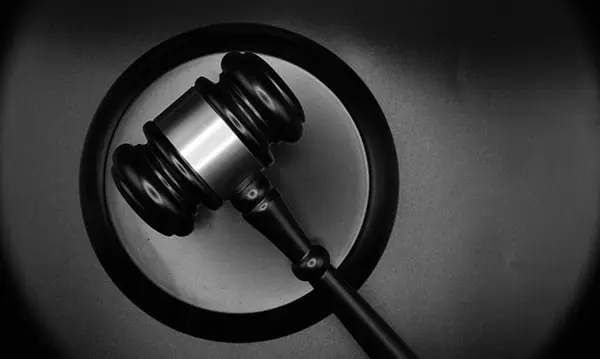The ongoing lawsuit between Deep Cycle Systems (DCS), an Australian manufacturer of lithium-ion batteries, and YouTuber Stephan Fischer, has sparked significant concern in the content creation and consumer rights spheres. Fischer, who runs the YouTube channel AllOffroad 4×4 Adventures, is being sued by DCS over his critical review of their batteries, raising questions about the boundaries of product reviews, freedom of speech, and corporate responsibility. This case could set a crucial precedent for how companies handle criticism and how creators navigate potential legal challenges.
Background of the Case
Fischer’s journey with DCS began positively when he initially recommended their products on his channel. Over time, however, after extensive testing under harsh off-road conditions, Fischer discovered substantial issues with the performance of the DCS batteries. His tests revealed that the batteries degraded far more quickly than promised, with capacity losses that far exceeded the company’s claims. In a series of videos posted in 2023, Fischer expressed his concerns, advising his viewers to be cautious about using DCS products in similar environments.
DCS responded by filing a defamation lawsuit in the District Court of Queensland. The company alleges that Fischer’s reviews were defamatory and malicious, resulting in significant financial losses for the company. Fischer, on the other hand, maintains that his reviews were honest and based on rigorous testing, thus falling under the protection of free speech.
The Stakes for Content Creators
This lawsuit has broader implications than just the dispute between DCS and Fischer. If DCS succeeds in court, it could set a dangerous precedent for content creators worldwide. The lawsuit could deter independent reviewers from publishing negative feedback about products, fearing potential legal repercussions. This concern is amplified in today’s landscape, where most content creators work independently and lack the financial resources to defend themselves against large corporations.
Historically, product reviews have played a critical role in guiding consumer decisions. However, the rise of lawsuits like this one raises concerns about the future of authentic, independent reviews. The mere threat of legal action could push creators to self-censor or rely on sponsored, biased content.
The Legal Landscape: Defamation and Corporate Responsibility
At the heart of this case lies the issue of defamation law. In Australia, where the case is being tried, defamation requires proving two key elements: first, that the defendant made a false statement, and second, that the statement caused financial harm to the plaintiff. DCS will have to demonstrate that Fischer’s claims about the batteries were both untrue and damaging to their business.
Defamation law is designed to balance free speech with protecting individuals and companies from malicious falsehoods. However, many experts are concerned that cases like this one may be used to suppress legitimate criticism. While companies have the right to defend their reputations, it is equally important to ensure that consumers and reviewers can speak freely about product performance, particularly when their opinions are based on factual evidence.
Public Backlash and the Streisand Effect
Interestingly, the lawsuit seems to have had the opposite effect DCS might have intended. Since news of the lawsuit broke, Fischer’s YouTube channel has gained significant attention, with a surge in subscribers and widespread support from the online community. His GoFundMe campaign to cover legal fees has raised nearly $90,000, showing the extent of public support for his cause.
This phenomenon, known as the “Streisand Effect,” occurs when an attempt to suppress information only amplifies public interest in it. In this case, DCS’s lawsuit has drawn more attention to Fischer’s reviews and the alleged shortcomings of the company’s products than the original videos themselves.
Consumer Stories and Warranty Issues
Compounding DCS’s legal woes are the growing number of consumers who have come forward with their own negative experiences with the company’s batteries. Verified buyers have shared horror stories, including one case where a DCS battery allegedly caused a vehicle fire. Many other customers have reported premature capacity loss, with some claiming their batteries lost up to 50% of their original capacity within a short period of time.
Adding fuel to the fire, DCS has been accused of retroactively altering their warranty policies. Fischer and other customers claim that DCS changed the conditions under which they would honor warranty claims, lowering the threshold for defective batteries from 80% capacity retention to 70%. This change, allegedly made without updating the warranty date, has left many consumers feeling misled.
Conclusion: The Future of Reviews and Consumer Protections
The DCS battery lawsuit could have far-reaching consequences for content creators, companies, and consumers alike. While it remains to be seen how the court will rule, the case has already sparked important discussions about the role of product reviews, corporate accountability, and the potential chilling effect of defamation lawsuits on free speech. As the case progresses, many will be watching closely to see whether this is a turning point for the rights of independent reviewers.
Regardless of the outcome, this case serves as a reminder for content creators to be meticulous in their reviews, ensuring that their opinions are backed by evidence. It also highlights the importance of consumer protections and corporate transparency in an era where online reviews are often the first source of information for prospective buyers.


